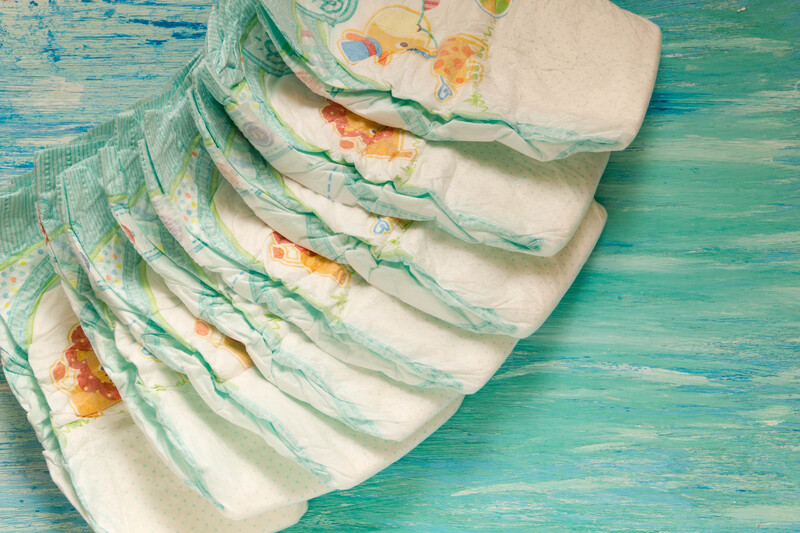The Saver's Handbook for Handling Bulky Waste Items
Every homeowner, renter, or property manager will at some point face the challenge of disposing of large, awkward, or heavy waste items. Whether you are clearing out a garage, renovating your home, or simply getting rid of old furniture, knowing how to handle these bulky objects efficiently and sustainably can save you time, money, and hassle. Welcome to The Saver's Handbook for Handling Bulky Waste Items -- your comprehensive guide to managing oversized waste responsibly.
What Are Bulky Waste Items?
Bulky waste items--also known as large or oversized items--refer to waste materials that cannot be disposed of through regular trash collection due to their size, weight, or shape. These commonly include:
- Old furniture such as sofas, mattresses, and wardrobes
- Home appliances: refrigerators, washing machines, ovens
- Renovation debris: doors, bathtubs, large fixtures
- Electronics: TVs, computer monitors, servers
- Outdoor gear: grills, patio sets, trampolines
- Exercise equipment: treadmills, ellipticals
- Car parts: tires, bumpers, seats
- Large musical instruments: pianos, drum kits
Bulky waste management often requires special care, logistics, and knowledge compared to disposing of everyday household garbage.

Why Proper Bulky Waste Disposal Matters
Incorrect disposal of bulky items is not just inconvenient--it can be hazardous to the environment, illegal, and costly:
- Environmental impact: Bulky waste in landfills increases pollution and consumes valuable space.
- Health concerns: Poorly disposed bulky items can harbor pests, mold, or hazardous materials.
- Legal ramifications: Illegal dumping or "fly-tipping" can result in hefty fines.
- Wasted resources: Many large items contain materials that can be recycled or repurposed.
Proper disposal is the responsible, legal, and sustainable solution. Moreover, it often makes you eligible for tax benefits and incentives in certain regions.
Smart Storage and Sorting Tips Before Bulky Waste Removal
Before you dispose of anything, plan how you store and sort your bulky waste. This will save you time and may even put some cash back in your pocket.
- Identify reusable items: Not all bulky items are junk. Sort out pieces that can be repaired, sold, or donated.
- Separate hazardous materials: Items like electronics, appliances containing refrigerants, or pressure-treated wood may require special disposal methods.
- Disassemble if possible: Breaking down furniture or appliances makes storage, transport, and even recycling easier.
- Group similar materials: Metal, plastic, wood, and fabric items should be sorted by material to streamline recycling and disposal.
- Keep documentation: For costly electronics or furniture, maintain receipts or serial numbers. This helps with donation, resale, or even claiming rebates.
The Benefits of an Organized Approach
Organized sorting ensures that what can be recycled or upcycled is not unnecessarily discarded, and it makes it easier for collection services to do their part efficiently.
Top Bulky Waste Disposal Methods and Services
1. Municipal Bulk Collection Programs
Most cities and towns offer bulk waste pickup or curbside bulky item collection. These services are often free or low-cost for residents, but
- Typically require advance booking or adherence to a set schedule
- May limit the number and type of items accepted per pickup
- Do not always take hazardous materials or certain electronics
Tip: Check your local government's website for schedules and accepted items.
2. Private Junk Removal & Bulky Waste Specialists
If you're short on time, consider hiring a professional bulky waste item removal company. These services:
- Offer labor, transportation, and proper disposal
- Can safely remove items from inside your property
- Handle heavy, awkward, or hazardous waste
- Are especially useful for large clearances or estate cleanouts
While more expensive than municipal services, their expertise and convenience can justify the cost.
3. Drop-Off Centers and Recycling Facilities
Various centers accept large or oversized waste for proper disposal or recycling. Examples include:
- Household waste recycling centers (HWRCs)
- Private recycling depots
- Manufacturer take-back programs for electronics or appliances
- Construction and demolition waste drop-off sites
Always call ahead to confirm opening hours and item eligibility.
4. Donations to Charities and Non-profits
Many charities will collect usable bulky household items--including sofas, beds, and kitchen appliances--for free and give them a second life. Good candidates for donation are:
- Functional furniture
- Gently used appliances (with manuals if possible)
- Bicycles and sports gear
- Musical instruments
Pro-tip: Items must usually be clean and in working order; always check donation guidelines in advance.
5. Online Marketplaces and Local Swaps
If your bulky waste item still has value, consider selling or giving it away. Websites and apps such as Craigslist, Facebook Marketplace, Freecycle, and Buy Nothing groups offer platforms to:
- List free or for-sale oversized items to neighbors
- Arrange for curbside pickup or direct handoff
- Reduce environmental impact by prolonging item lifespan
Sustainable and Eco-Friendly Bulky Waste Handling
Environmental stewardship is more crucial than ever. Here's how you can minimize your ecological footprint when handling bulky waste:
1. Embrace Recycling and Upcycling
Recycling bulky waste is not just about tossing items at a facility. Look for ways to upcycle--transforming seemingly useless items into something valuable. For example:
- Old doors become headboards or wall decor
- Drawers from broken dressers serve as under-bed storage
- Pallet wood can be repurposed into bookshelves or planters
2. Choose Green Disposal Partners
When hiring a bulky waste disposal service, ask about their recycling rates and landfill diversion strategies. Responsible companies will:
- Sort and recycle as much material as possible
- Donate items in good condition
- Dispose of hazardous components safely
3. Properly Handle E-waste and Hazardous Bulky Items
Electronic waste, white goods, and certain treated woods contain substances harmful to people and nature. Never place these in regular trash. Seek out specialized recyclers, and always remove batteries before disposal.
Preparation Tips: Getting Bulky Waste Ready for Collection
Efficient bulky item removal starts with safe, smart preparation:
- Clean and sanitize items if possible, especially if they're destined for donation or resale.
- Measure dimensions and weight--some programs have size/weight limits.
- Photograph before and after: For home insurance, records, or dispute resolution, photos are valuable.
- Clear pathways: Make removal safe by removing obstacles, pets, or fragile items from the area.
- Label hazardous items clearly for collection crews to recognize and handle appropriately.
Note: Some removal services will not pick up items that contain pests, are drenched, or are unsafe to move. Always check guidelines first.
Bulky Waste Items Best Practices for Savers
- Plan ahead: Review community clean-up days or seasonal bulk pickups--these can be free or low-cost opportunities.
- Bulk together: If you have several items, dispose of them at once to minimize trips and fees.
- Compare quotes: Ask for estimates from at least three disposal providers if hiring pros.
- Ask about recycling: Maximize landfill diversion by confirming how your items will be processed.
- Document tax-deductible donations: Charitable contributions of valuable bulky items may be tax-deductible.
Bulky Waste Handling Mistakes to Avoid
Even experienced savers sometimes get it wrong. Avoid these common pitfalls:
- Assuming everything must be trashed--recycling and donation options exist for many items
- Illegal dumping--unauthorized disposal in public or private spaces risks fines and harms your community
- Ignoring safety--don't attempt to move oversized or heavy items alone; use straps, dollies, or help
- Overlooking local regulations: Cities and counties differ in permitted disposal practices
- Forgetting to wipe data from electronic devices before disposal
With careful planning and research, you can save money, protect your environment, and perhaps help others with responsible bulky waste handling.

Frequently Asked Questions About Bulky Waste Items
1. What qualifies as a bulky waste item?
Bulky items are generally anything too large, heavy, or awkward for standard bins--sofas, tables, mattresses, appliances, and sometimes large boxes or fixtures.
2. Can I leave bulky items on the curb anytime?
No--most municipalities have strict rules about when and how to place bulky items on the curb. Check schedules and requirements to avoid fines or missed pickups.
3. Are there fees for bulky waste disposal?
It depends. Many towns offer free collection up to a limit, while private removal or large item drop-offs often incur charges. Always verify pricing before scheduling service.
4. What happens to my bulky items after collection?
Responsible disposal services recycle, donate, or appropriately process items to minimize landfill impact. Ask your provider about their environmental policy for transparency.
Conclusion: Be a Savvy Saver with Smart Bulky Waste Handling
Learning how to dispose of and manage bulky waste items not only saves money but also supports your community and our planet. Use the tips and strategies in this Saver's Handbook for Handling Bulky Waste Items to make smart, sustainable decisions--whether you're decluttering, renovating, or just staying organized. Turn your bulky waste challenge into an opportunity to give back, recycle, and save!
For more advice on sustainable waste management and saving resources at home, subscribe to our updates and share this guide with friends and neighbors!



